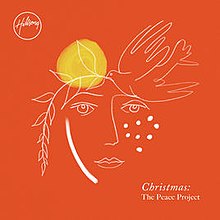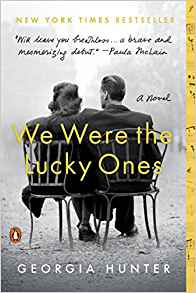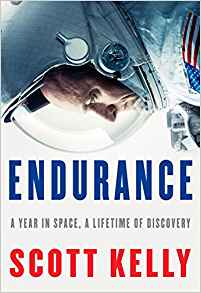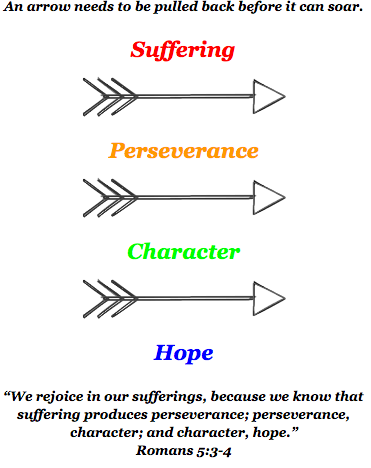|
When I was in elementary school I heard people at my church talking about an African country named Zaire. And one time in Sunday School we were able to meet a missionary from the church to Zaire. I can still picture the peaceful young man I met that day. Something about his demeanor and the nature of his work set him apart in my mind. He was doing something holy.
I can remember photos of African children taped to the refrigerator at home, kids my parents were sponsoring through church missions. I think I remember talking about them a little, perhaps as an opportunity for a penpal. I can’t recall whether I ever wrote a letter to Africa. I do remember corresponding with an American penpal in Connecticut -- a project my second grade teacher had set into motion. Her name was April, and I felt so special to have a friend across the country. I’m not sure why I thought I couldn’t develop a connection to kids around the world. How much more exciting that would have been! And yet, even as a young child, I knew it wouldn’t come so easily as my writing to April. In recent years my husband and I have brainstormed ways to serve both locally and globally. A couple of years ago our church asked us to support the efforts of World Vision by sponsoring a child in the country now called the Democratic Republic of the Congo. I have to admit that I balked at the idea. I thought perhaps we should do that when our kids are a little older -- old enough to better understand why we would sponsor a child, old enough to be able to correspond with such a child and thus gain a penpal in addition to a larger worldview. A couple of months ago my son and I attended an event about the Congo at our church. We learned that through the cooperation of World Vision (a Christian humanitarian organization), Global Unites (a Sri Lankan-based non-profit that works to engage youth from war-torn countries in peace talks) and the Evangelical Covenant Church (the denomination my church is part of), the Congolese people are directing efforts to revitalize the economy in the midst of political turmoil. They are providing food, clean water, access to education, medical clinics and are even planting tens of thousands of trees to revitalize regions for farming. They are a few years into a 15 year plan to give tribes a boost toward sustainability. At the end of a powerful morning I asked myself what I was waiting for. I had been hearing about the needs of the people in the Congo since childhood. What was stopping me? Why was there always something to wait for? I looked at my son, too young to understand any of this, and I was convicted to sponsor a child...which in actuality, sponsors an entire family, and the funds are really used in a communal way, because in Congolese culture, community is everything. Since we had recently buried our dog and I was grieving at the time, I picked a child with the same birth month as Sanibel as a way to remember her beautiful life. I worry about whether this is modern day colonialism. I despair that my small monthly donation won’t change the world. But I hope though the aggregated efforts of many, we can bring hope to a few. And I can now say that I am finally part of a global effort that I first heard of thirty years ago. It was a long time coming for sure, but I also learned it’s never too late.
0 Comments
 Upon returning from Christmas travel this year I noted the abrupt ending to that feeling of expectation that had boosted my attitude this past season -- for end of year activities, travel and Christmas morning. Then, except for one or two New Year’s cards, the mail slowed dramatically. On January 6th I packed up the Christmas decorations and noticed stark empty spaces. The “Top Christian Christmas Hits” Spotify playlist I had been enjoying defaulted to “Top Christian Hits” with little warning and no way to recover the previous list. All of this left a void and made me want to curl up and hibernate for the rest of the gray winter. During those early days in the new year when we traditionally think of making new year’s resolutions, I too spent time reflecting on what I would like to change in this next season. I was discouraged to discover that my list was quite similar to the one I made in the fall when I wrote about sending my kids off to school for the first time. While I had kept many commitments, like taking the kids to their activities, reading for book clubs, singing in the Christmas Benefit Concert and volunteering for school and community groups, I had failed to carve out consistent time for other pursuits -- in particular, writing and exercise.
This realization made me at first want to cease outside commitments for a season and just focus on my personal goals. Between the post-holiday crash and the lull of winter, where would I find the energy to continue with all of the resolutions I had made in the fall? Maybe it was our hot water heater breaking and half-flooding the basement that pushed me to my limit. Or maybe it was after that trip to the grocery store during which I was unable to use clipped coupons due to a software change at the corporate level. I struggled over the phone with the plumber and manufacturer to understand what had happened to our hot water heater and how best to fix it. And I struggled to compose a not-too-lengthy but strong letter to the grocery store manager in which I suggested changes to the system to enable customers to use coupons with ease. I described how on that visit in particular I was purchasing not only food for my family of six but also 188 extra snacks and dinners to be delivered to others that week -- for school classrooms, for our Tigers Christian Club and for my contribution through Community Cooks. Clipping coupons was essential for making each dollar stretch as far as possible. What did I do with all of this frustration? Well, like many others needing to escape, I found myself at an open house for my dream home in the suburbs. I stood outside the new construction admiring its position on a corner lot and the inviting yellow door that beckoned me inside. I stepped over the threshold and felt at home at once. I toured slowly through each room finding everything placed exactly where it should be. I breathed in the newness around me and began asking “what if”. What if we could just start over? What if we had more space? What if I could just put commitments down for a little while? What if I could find rest here? I started at the house for a few minutes more before climbing into my car and driving away, knowing I would never see it again. A move right now wouldn’t make any sense, and buying into that house would be a poor financial decision for us. I cried about it for a few days and brainstormed healthier ways to boost my energy level. Fortunately, before that Christmas Spotify playlist changed on me, I had a chance to note the lyrics to a song that captured my ear and attention one afternoon when I was methodically folding laundry. Savor these words from Hillsong Worship’s song Seasons (and seek it out on Spotify if you have a moment): You’re the God of seasons I’m just in the winter If all I know of harvest Is that it’s worth my patience Then if You’re not done working God I’m not done waiting You can see my promise Even in the winter The words said to me, “You are not alone.” Others, like the song writers, have been there too. This is a recognized season to endure with patience and a reminder to call out to God for strength when I feel like I can’t do it on my own. Since then I have asked for help from friends with certain activities and am going to try out a new scheme for after-school activities that could give my kids more one-on-one time with me. I am going to work to protect the time I carved out for writing and exercise. But, while I was tempted to put some down, I am going to keep the commitments to volunteer work that I signed up for in the fall. The reality is, people don’t hibernate. The groups that distribute food will continue to need it, and I need to continue to provide it. This is my new year’s resolution, with God’s help, one day at a time, “being confident of this, that he who began a good work in you will carry it on to completion” (Philippians 1:6). Enjoy the rest of the lyrics to Seasons below: Seasons Words and Music by Chris Davenport, Benjamin Hastings & Ben Tan VERSE 1 Like the frost on a rose Winter comes for us all Oh how nature acquaints us With the nature of patience Like a seed in the snow I’ve been buried to grow For Your promise is loyal From seed to sequoia PRE-CHORUS I know CHORUS Though the winter is long even richer The harvest it brings Though my waiting prolongs even greater Your promise for me like a seed I believe that my season will come VERSE 2 Lord I think of Your love Like the low winter sun As I gaze I am blinded In the light of Your brightness Like a fire to the snow I’m renewed in Your warmth Melt the ice of this wild soul Till the barren is beautiful BRIDGE I can see the promise I can see the future You’re the God of seasons I’m just in the winter If all I know of harvest Is that it’s worth my patience Then if You’re not done working God I’m not done waiting You can see my promise Even in the winter Cause You’re the God of greatness Even in a manger For all I know of seasons Is that You take Your time You could have saved us in a second Instead You sent a child TAG And when I finally see my tree Still I believe there’s a season to come VERSE 3 Like a seed You were sown For the sake of us all From Bethlehem’s soil Grew Calvary’s sequoia  This debut novel by Georgia Hunter is based on the true story of her own family’s survival of the Holocaust. At the outbreak of WWII, Hunter’s great-grandparents were enjoying a time in life when their five children were marrying and beginning their own families. Initially set in Radom, Poland, Hunter traces the branches of the family tree as family members suffer under changing governments in Eastern and Western Poland, break through entrapment in Vichy France, and face exile to Siberia. Punctuated with global perspective and striking statistics to demonstrate how family members escape the odds, Hunter chronicles their journeys through Europe, Asia, and Africa before a tear-filled reunion in South America and resettlements in the United States and Europe. While certainly not pleasure reading, I felt compelled to keep turning the pages. I was anxious the whole read, praying the family members would escape each impossible situation as foes and challenges were ever changing. The details in this story haunted me for weeks after I put it down.
The next book I picked up was Trevor Noah’s Born a Crime for the Tipsy Mamas’ Book Club. Set in post-apartheid South Africa with a completely different style and focus, I was surprised to find I continued to think of We Were the Lucky Ones and felt the need to draw comparisons between it and Noah’s account. Two things stood out above all in Hunter’s work from a content perspective: the global involvement and impact of WWII and the unbelievable statistics of the atrocities documented. In contrast, Trevor Noah paints a very different reality through his telling of stories of his South African childhood. He points out that his education about WWII was extremely limited. Something about a bad guy named Hitler who was defeated. He suggests that our understanding of atrocities in South Africa and other African countries is similar. Something like, there was apartheid, then Nelson Mandela, and then everything was okay. He also suggests that perhaps we don’t know as much about atrocities against Africans because there isn’t any documentation -- no records like those the Nazis kept during WWII. He particularly mentions South African oppression under Cecil Rhodes whom some have called the “architect of apartheid” and Congolese genocide under the rule of King Leopold II of Belgium, the effects of both of which are still felt to this day. Now, one scholar has argued that perhaps Rhodes wasn’t that bad, perhaps just a man of his time, and besides, he behaved “no worse than the white settlers in North America, South America, and Australia; and in some senses better, considering that the genocide of natives in Africa was less complete.” (Wikipedia, “Cecil Rhodes”, bold italics my addition) Considering genocide was less complete? Is there such a thing as relativism when it comes to genocide? I won’t answer that here. But I will argue that we shape history by what is acknowledged and by what is remembered. You can read more of my thoughts on Born a Crime on the book club blog page. In the end, what can we gather from these two accounts? Georgia Hunter traveled the world to uncover facts and piece together her family’s story. How far must we too go to have a better understanding of lesser documented and lesser voiced cultures?  This month the O’Neill library book club discussed Scott Kelly’s Endurance, an account of his life and of his record-setting year on the International Space Station. My daughter is currently fascinated with space, wanted to read the book as well and actually read and finished it before I had a chance to pick it up. She has read a few other adult books, but this still seemed risky. I didn’t know what the pages held and whether it was appropriate for her. She seemed pretty set on devouring the text as quickly as possible, so I just told her this -- that this is an adult book and that if she came across something that made her uncomfortable she could choose to skip it or come and talk to me about it. When I finally began turning the pages, I learned that in his prose Kelly alternates chapters describing his life path with chapters describing his journey around the sun while aboard the ISS. I was startled by Kelly’s troubled upbringing and risk-taking behavior in a very different way had I not been trying to guess my daughter’s reaction to each uncomfortable description -- from an alcoholic and sometimes suicidal father and uncertainty and hunger in childhood to swearing, raucous behavior in the military, adult relationships and divorce. Nervously, unsure of how much to discuss with her, I commented to my daughter one night that I realized that Kelly had a pretty hard childhood. I asked her what she thought about that. She nodded as if she understood what I meant but then quickly said, “Yeah, I didn’t like those chapters so much. I just wanted to read about what he was doing in space!” I smiled at her and recalled a comment by our children’s librarian -- how kids probably won’t process a lot of adult content and how she herself remembers visiting books from childhood later in life and reading them in an entirely new light. Reassured, I continued to turn the pages and reflect on Kelly’s writing and experience, and I realized I could make a second list -- important takeaways from the lessons he learned. First, it was inspiring to learn that in the midst of failing at school (which he attributes in part to undiagnosed ADD) he found his life’s calling through reading The Right Stuff by Tom Wolfe. How wonderful to be inspired by a book! One reader at the O’Neill library discussion commented that Kelly’s book, in turn, could itself be used to inspire other struggling teens who may not fit with the traditional academic system. His work ethic and perseverance definitely produced a character that took him far. In addition to clearly describing his gratitude for Tom Wolfe, Kelly elucidates two other key factors that contributed to his (and his team’s) success. First, each member of the team was trustworthy, dependable, hard-working and willing to serve others. The astronauts listened to each other. They shared their food and supplies. They were from different countries and spoke different languages, so they learned foreign languages so they could understand each other. They helped each other with science experiments and repairing equipment on the space station. Kelly describes team member after team member not by the achievements they likely had on their resumes but by their character traits that made each an essential part of the team -- people he could trust literally with his life. Second, he returns repeatedly to the reality that the team members weren’t always friends -- indeed, Russians and Americans were too recently enemies in the Cold War. He praises the remarkable feat of engineering demonstrated in the construction and ongoing work on the ISS, but suggests that the real accomplishment is the fact that this is a cooperative endeavor made possible because those involved choose continually to be peacemakers. From his book: “It’s a strange sight, glinting in the reflected sunlight, as long as a football field, its solar arrays spread out more than half an acre. It’s a completely unique structure, assembled by spacewalkers flying around the Earth at 17,500 miles per hour in a vacuum, in extremes of temperature of plus and minus 270 degrees, the work of fifteen different nations over eighteen years, thousands of people speaking different languages and using different engineering methods and standards. In some cases the station’s modules never touched one another while on Earth, but they all fit together perfectly in space.” (364) “In a world of compromise and uncertainty, this space station is a triumph of engineering and cooperation. Putting it into orbit -- making it work and keeping it working -- is the hardest thing that human beings have ever done, and it stands as proof that when we set our minds to something hard, when we work together, we can do anything, including solving our problems here on Earth.” (364) I realized while reading Kelly’s book that these themes were the basis for the lessons I presented to the Tigers Christian Club this month. In our first lesson about Joseph and his brothers we learned the importance of managing anger, and beyond that, how to look for ways to be a peacemaker, noting that Jesus said in Matthew 5:9: “Blessed are the peacemakers.” We talked about what we could do to make peace, things like:
In the second lesson (which another mom presented when my family was under weather -- thank you!) we talked about how selfishness can make us want to be first or have the best of something, and we learned that Jesus wants us instead to learn to be servants first. From Mark 9:35: “If anyone wants to be first, he must be the very last, and the servant of all.” Putting others first is a way to honor others. Beyond that, when we put others ahead of ourselves, it builds character that allows us to handle more responsibility in the future. I intended to demonstrate this concept using a toy bow and arrow. Like arrows that need to be pulled back before they can soar, I suggested that so too can we act as servants towards one another, putting others first. As Paul writes in Romans, doing so produces perseverance which builds character and, in turn, creates hope. The kids then used feathers, glue and arrow stickers to decorate a picture frame featuring this message: It is my hope that Kelly’s book and these messages of peacemaking and a cultivating a servant’s heart will inspire you as well. Kelly became a peacemaker and a servant to those around him (and continues in this work as he dedicates his body to scientific study), and it took him out of this world. Where will the arrow of your heart take you?
|
Author's Log
Here you will find a catalog of my writing and reflections. Archives
December 2022
|
